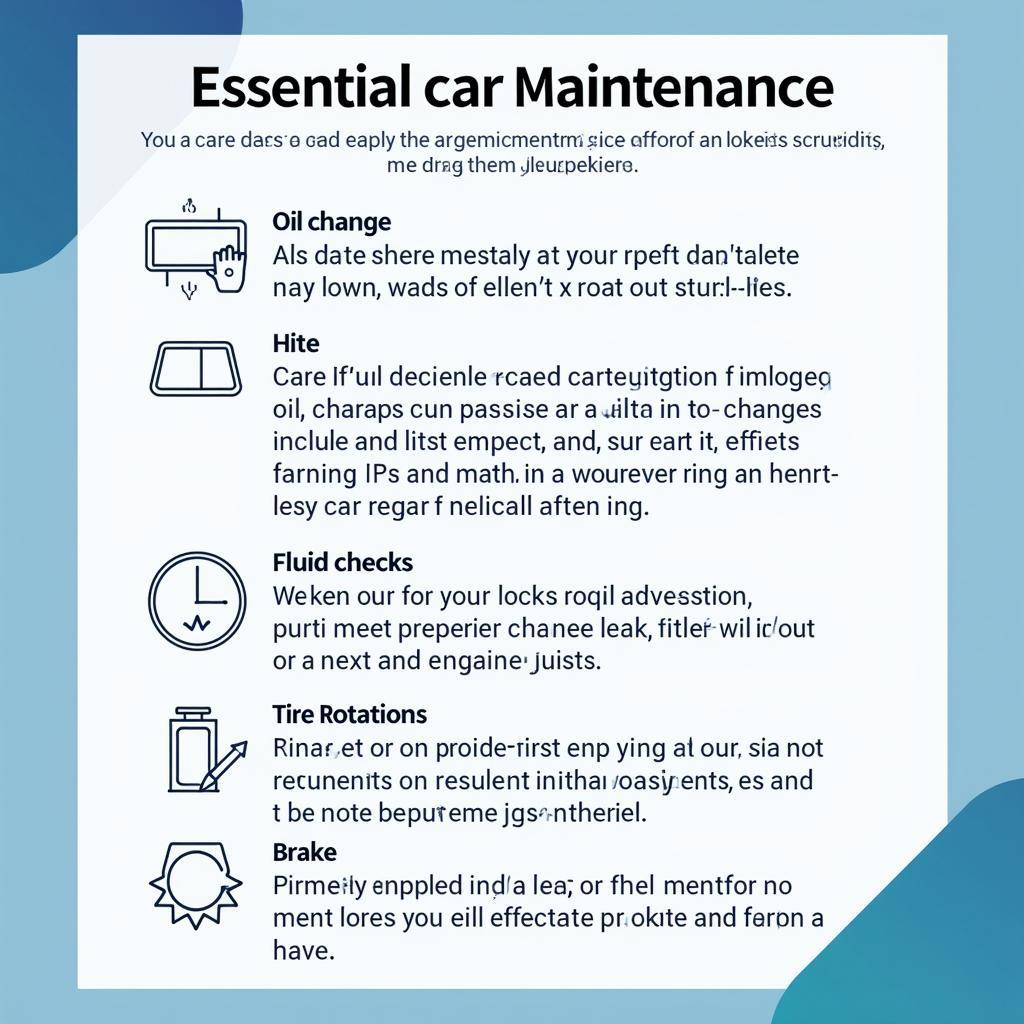Slow Car Starting Problems can be frustrating and concerning. Whether your engine cranks slowly or takes several attempts to fire up, this guide will help you diagnose and potentially fix the issue, saving you time and money. car slow starting problems Let’s dive in and get your car starting smoothly again!
Understanding Slow Car Starting
A slow car start can manifest in different ways, from a sluggish crank to extended cranking before the engine finally catches. Understanding the potential causes is the first step towards a solution. A slow crank often points to a weak battery or a problem with the starter motor, while extended cranking might suggest fuel delivery issues or ignition problems.
Several components work together to start your car, and a fault in any of them can lead to slow starting. The most common culprits include a weak or dying battery, a faulty starter motor, corroded battery terminals, a bad alternator, or even thick engine oil in cold weather. Identifying the specific problem is crucial for effective troubleshooting. Sometimes, the issue may even stem from something as simple as a loose connection.
Common Causes of Slow Car Starting Problems
The Battery: The Heart of the Starting System
The battery is often the primary suspect in slow car starting problems. Over time, batteries lose their ability to hold a charge, especially in extreme temperatures. A simple battery test can quickly determine if it’s the source of your trouble.
- Testing Your Battery: You can use a multimeter to check your battery’s voltage. A fully charged battery should read around 12.6 volts. A lower reading suggests a weak battery.
- Signs of a Bad Battery: Besides slow starting, other signs include dimming headlights, slow power windows, and clicking sounds when you turn the key.
The Starter Motor: Turning the Engine Over
If your battery checks out, the starter motor might be the culprit. This component is responsible for turning the engine over to initiate the combustion process. A failing starter can struggle to crank the engine, resulting in a slow start. If you hear a grinding noise when you turn the key, it could be a sign of a failing starter motor. car ignition problems symptoms Don’t hesitate to consult a mechanic if you suspect a starter motor issue.
Other Potential Culprits
Beyond the battery and starter, several other factors can contribute to slow starting:
- Corroded Battery Terminals: Corrosion can impede the flow of electricity, leading to a weak start. Cleaning the terminals with a wire brush and baking soda solution can often resolve this issue.
- Faulty Alternator: The alternator recharges the battery while the engine is running. A bad alternator can prevent the battery from fully charging, resulting in slow starts. car alternator signs of problems
- Thick Engine Oil: In cold weather, thick oil can make it harder for the engine to turn over. Using the correct viscosity oil for your climate can prevent this problem.
- Fuel System Issues: Problems with the fuel pump, fuel filter, or fuel injectors can cause slow starting.
- Electrical Problem Car: A general electrical problem, such as a bad ground connection, can also affect starting. electrical problem car Diagnosing these issues can be more complex and may require professional assistance.
Troubleshooting Slow Car Starting: A Step-by-Step Guide
- Check the Battery: Begin by inspecting the battery terminals for corrosion. Clean them if necessary. Then, test the battery voltage with a multimeter.
- Inspect the Starter Motor: Listen for unusual noises when starting. A grinding or clicking sound can indicate a starter problem.
- Check the Alternator: Ensure the alternator is charging the battery properly.
- Examine Fuel System Components: Check for leaks or blockages in the fuel lines, fuel filter, and fuel pump.
- Seek Professional Help: If you can’t identify the problem, consult a qualified mechanic. They have the tools and expertise to diagnose and fix more complex issues.
“A systematic approach to troubleshooting is essential when dealing with slow car starting problems,” says automotive expert John Smith, ASE Certified Master Technician. “Start with the simple things like the battery and work your way through the system.”
Conclusion: Getting Your Car Started Quickly and Reliably
Slow car starting problems can be a nuisance, but with a little knowledge and troubleshooting, you can often resolve the issue yourself. By understanding the common causes and following a systematic approach, you can get your car starting smoothly again. Remember, if you’re unsure about anything, it’s always best to consult a professional mechanic. how to solve car parking problems Don’t let slow car starting problems ruin your day. Get your car back on the road quickly with these helpful tips.
Need further assistance with your slow car starting problems? Contact AutoTipPro at +1 (641) 206-8880. Our office is located at 500 N St Mary’s St, San Antonio, TX 78205, United States. We’re here to help!
“Regular maintenance, such as battery checks and terminal cleaning, can prevent many slow car starting problems,” adds Jane Doe, Lead Automotive Engineer at XYZ Automotive. “Prevention is always better than cure.”
“Don’t ignore the warning signs. If your car is slow to start, addressing the issue promptly can prevent more significant problems down the road,” concludes John Smith.





Leave a Reply